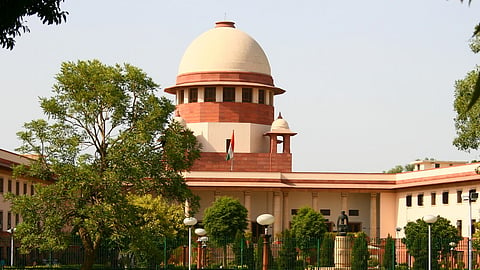

A two-judge bench of the Supreme Court, comprising Justices S. Abdul Nazeer and Krishna Murari, on Monday, set aside an order of the High Court of Orissa at Cuttack wherein the latter had dismissed an appeal in limine, thereby confirming the judgment dated August 4, 2017 passed by the Additional District Judge, Rourkela. The appeal was a regular second appeal filed by a defendant, and the High Court had dismissed it without stating any reasons. The appellant argued before the Supreme Court that the findings of the trial court and also of the First Appellate Court were bad in law. The appellant submitted that his second appeal involved substantial questions of law, and that the High Court ought to have entertained the appeal for considering those questions.
In the instant case, Hasmat Ali v Amina Bibi & Others, a suit was filed to seek a declaration that the defendant was a tenant of the plaintiff till March 31, 2003, for the eviction of the defendant from the suit scheduled property, and for certain other reliefs. After the trial, the suit was decreed in part on July 21, 2015, and the defendant was directed to deliver the vacant possession of the suit shop to the plaintiff. The defendant's first appeal was dismissed by the Appellate Court on August 4, 2017.
Justice Nazeer, who authored the judgment, noted that the law provides the remedy of an appeal because of the recognition that those manning the judicial tiers too commit errors. Section 100 of the Civil Procedure Code (CPC) provides for a right of second appeal by approaching a High Court and invoking its aid and interposition to redress error(s) of the subordinate court, subject to the limitations provided therein.
It is needless to state that even when any concurrent finding of fact is appealed, the appellant is entitled to point out that it is bad in law because it was recorded de hors the pleadings, it was based on no evidence, it was based on misreading of material documentary evidence, it was recorded against the provision of law, or the decision is one which no Judge acting judicially could reasonably have reached, Justice Nazeer held. Once the High Court is satisfied after hearing the appeal, that the appeal involves a substantial question of law, it has to formulate that question and direct issuance of notice to the respondent.
However, the bench emphasised, in order to come to a conclusion that the appeal does not involve any substantial question of law, the High Court has to record the reasons. "Giving reasons for the conclusion is necessary as it helps the adversely affected party to understand why his submissions were not accepted. The Court must display its conscious application of mind even while dismissing the appeal at the admission stage. In our view, the High Court cannot dismiss the second appeal in limine without assigning any reasons for its conclusion," the bench observed.
Allowing the appeal, the bench remitted the matter back to the High Court for fresh disposal in accordance with law and in the light of its observations in the judgment.